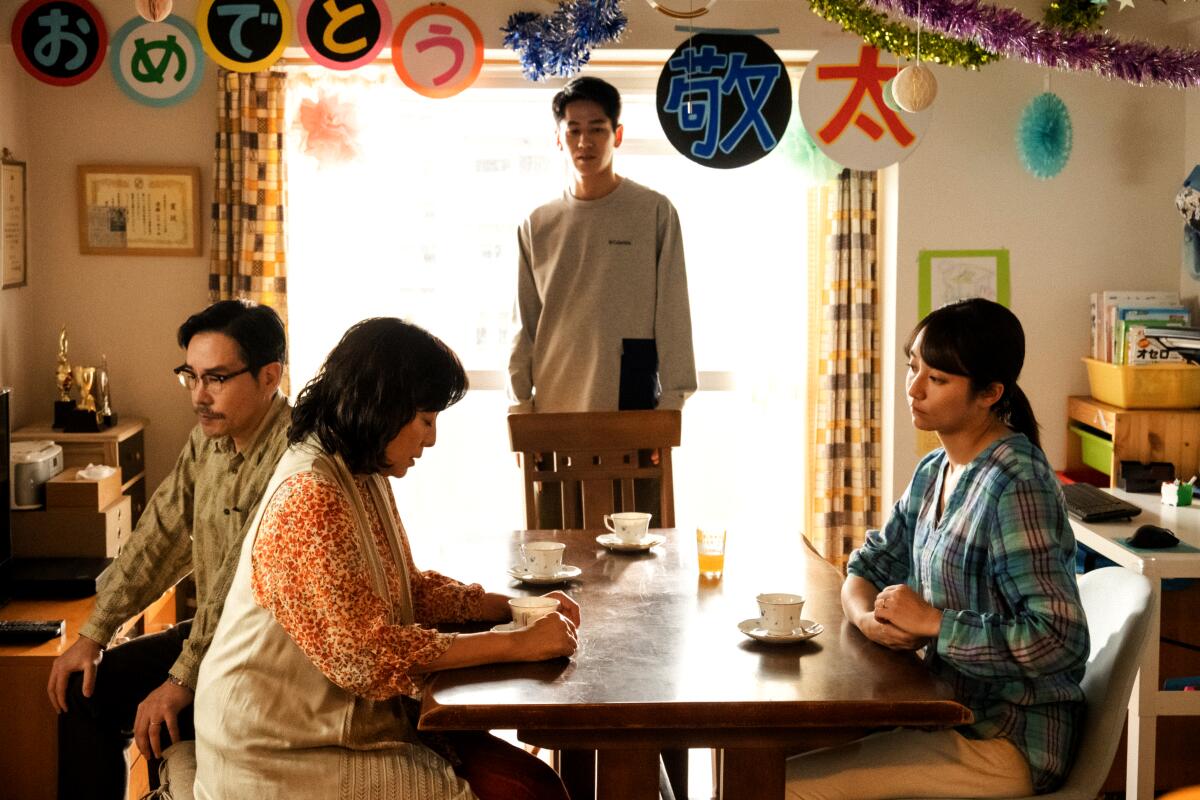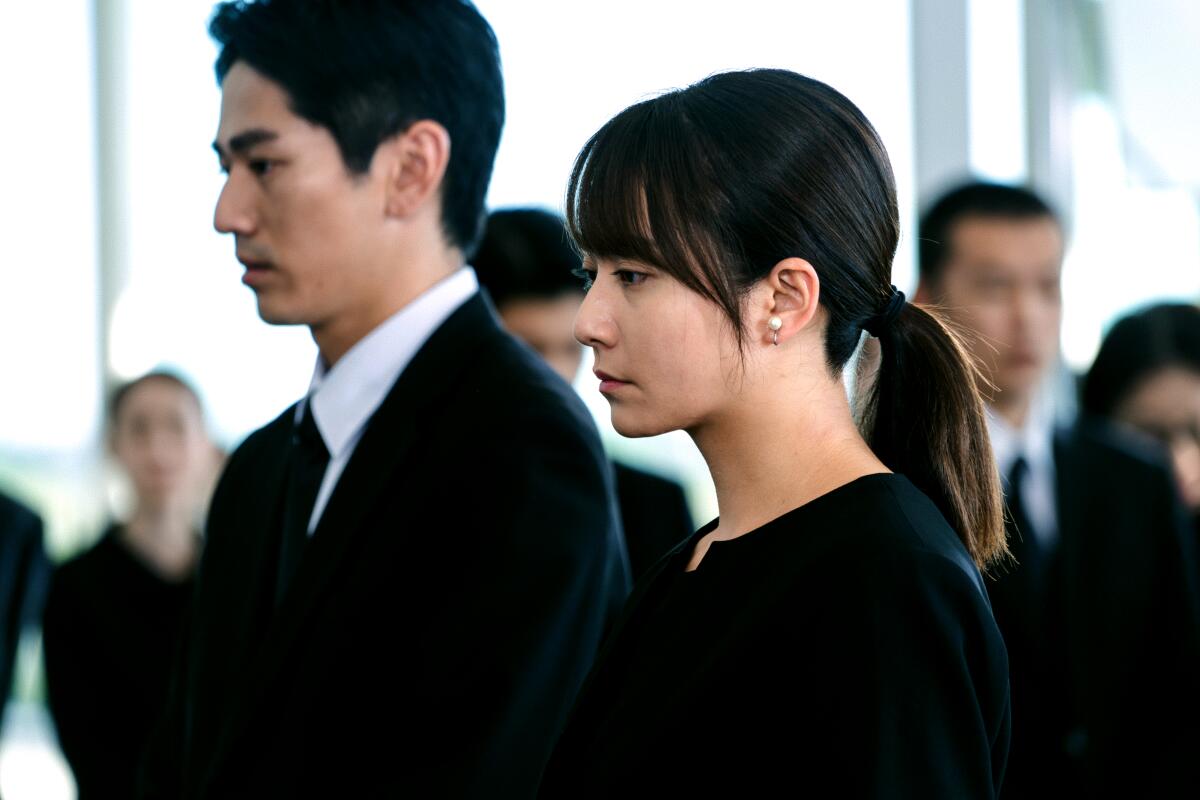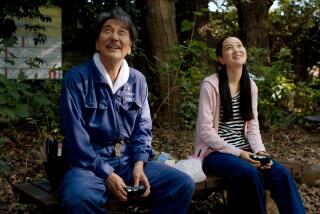Review: Striking unusual notes, Japan’s ‘Love Life’ shows an anguished family grappling with woe

Grief is universal, and yet no two stories about it are alike, a distinction that keeps Koji Fukada’s tender drama “Love Life” unpredictable as it mixes the mundane with the inexplicable, and empathy with alienation, to nuanced, if never fully stirring effect.
Fukada’s fascination with everyday lives upended, hauntingly and revealingly, has served him well when his themes and storytelling align with chilly meticulousness (his Cannes-winning knockout “Harmonium”). It’s also crumbled when his penchant for archness and ambiguity gets the best of him (2019’s “A Girl Missing”). With “Love Life,” the Japanese filmmaker is still focused on unspoken disconnections that only a shock to the system can expose. But instead of those earlier films’ crime-genre shadings, Fukada now develops the more direct emotional stakes of domestic tragedy, and the sad, strange pathways that emerge from dealing with the unfathomable.
It begins with an air of imminent celebration, as caring mom Taeko (Fumino Kimura), a social worker, decorates the cramped but orderly apartment she shares with husband, Jiro (Kento Nagayama), for a dual-purpose party: Keita (Tetta Shimada), Taeko’s bright, friendly son from a previous marriage, has won another board game competition, and Jiro’s dad is turning 65. But there’s a pinched quality to this blended, extended family: Taeko and Keita are clearly more of a team than she and Jiro are, while the husband’s parents (Tomorowo Taguchi and Misuzu Kanno) — who live one building over — exude discomfort with their son’s marriage, even rudely vocalizing their desire for a grandchild of their own.
This strained togetherness is made senseless, however, when hours later, away from the assembled partygoers, Keita dies alone in a scarily believable home accident. (We sense it more than see it, a prudent filmmaking choice.) The paralyzing, guilt-thick sadness that follows is then disturbed at the trance-like funeral by the sudden appearance of the boy’s long-absent father, Park (Atom Sunada), whose violently emotional outburst triggers Taeko’s first full outpouring of tears.

Like a family portrait painted over earlier versions of the same people, “Love Life” holds pieces of information about its characters until their actions reveal, with each scrape of the canvas, defining emotions and motives. With the emergence of Taeko’s ex, who is deaf, half-Korean and homeless, she takes it upon herself to help him get back on his feet, an act of mutual healing that her new husband grasps, but only to a point. Jiro is working out his feelings, too, which involves re-engaging with his own past. Park, meanwhile, is a curious mixture of sensitivity and opacity.
Fukada passes no judgment on how his characters choose to process grief, even relishing the occasional absurdity about it between the pained silences. His casting is spot on, too, especially with Kimura, who’s like a watchmaker with a broken timepiece, charting Taeko’s journey with meaningful precision. But one wishes the writer-director didn’t at times prefer the behavioral left turn to staying in place and exploring a moment. When Taeko tries to preserve her son’s last unfinished game board, even during a minor earthquake, the heart breaks. Other times, Fukada can treat his characters like game pieces themselves: Park’s actions may illuminate who Taeko is now, for instance, but it doesn’t necessarily give us insight into what initially drew these disparate figures together.
Taeko and Jiro’s relationship is much more poignant, and thankfully it’s where Fukada wants to leave us, with Akiko Yano’s plaintive song “Love Life” (the film’s inspiration) a suitably melancholic companion to a closing shot that’s like a short story itself, depicting lives in bittersweet parallel, but at least going in the same direction. Whenever Fukada operates in that space where we can’t necessarily make sense of people but understand them anyway, his movie creates a gently assured, sympathetic hum.
'Love Life'
Not rated
In Japanese and Japanese Sign Language, with English subtitles
Running time: 2 hours, 3 minutes
Playing: Opens Aug. 25, Laemmle Monica, West Los Angeles
More to Read
Only good movies
Get the Indie Focus newsletter, Mark Olsen's weekly guide to the world of cinema.
You may occasionally receive promotional content from the Los Angeles Times.










